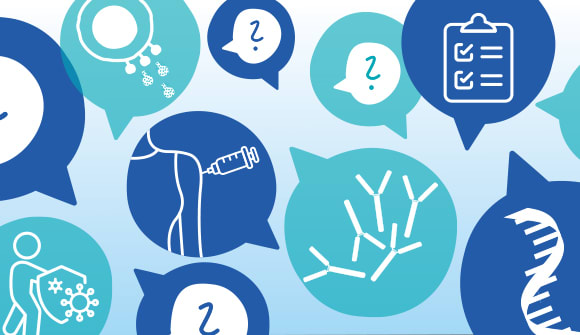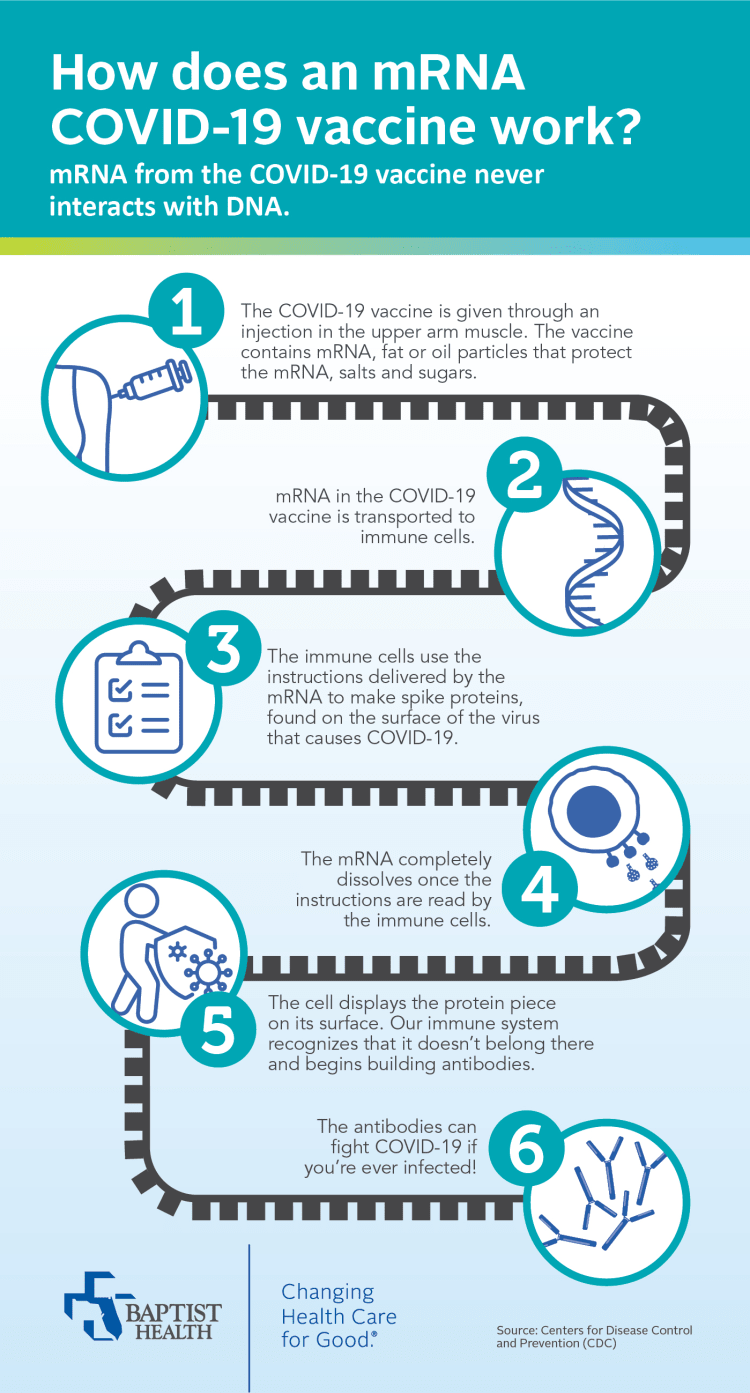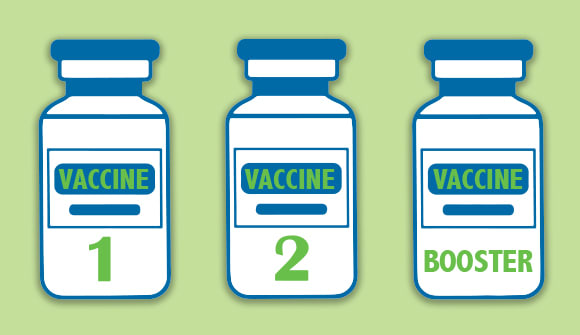Different DNA?
Why the COVID-19 vaccine can’t change your genetic code.
Article Author: Wesley Roberts
Article Date:

You might have a sore arm or slight headache after the COVID-19 vaccine, but the tall tales about “growing a tail” or another body part are false. The popular mistruths have led people to question, can the mRNA in the COVID-19 vaccine impact your DNA?
Delivering the message
Messenger ribonucleic acid, or mRNA, is genetic material found in all living cells. It can also be found in both the Pfizer/BioNTech and Moderna COVID-19 vaccines. Ted Glasser, MD, medical director of the hospitalist program at Baptist Medical Center Jacksonville explains what happens once you receive an mRNA COVID-19 vaccine.

“The reassuring news is mRNA never enters the nucleus of the cell, which is where our genetic material is kept,” explained Dr. Glasser. “Therefore, mRNA can’t combine with our DNA or change our genetic code.”
Though the acronyms for DNA and RNA are only one letter apart, there are crucial differences in the structure and function of the two. DNA, short for deoxyribonucleic acid, is double-stranded and is the storage area for instructions needed for an organism to develop, survive and reproduce.
“There’s no reason to think mRNA from vaccines will have a lasting effect on our biology,” explained Dr. Glasser. “The vaccine will, however, deliver life-saving instructions to our immune system to fight COVID-19.”
At Baptist Health, we want to help keep our community informed about COVID-19. For more information about COVID-19 vaccines as they become more widely available to the public, visit baptistjax.com/covid19vaccine.



